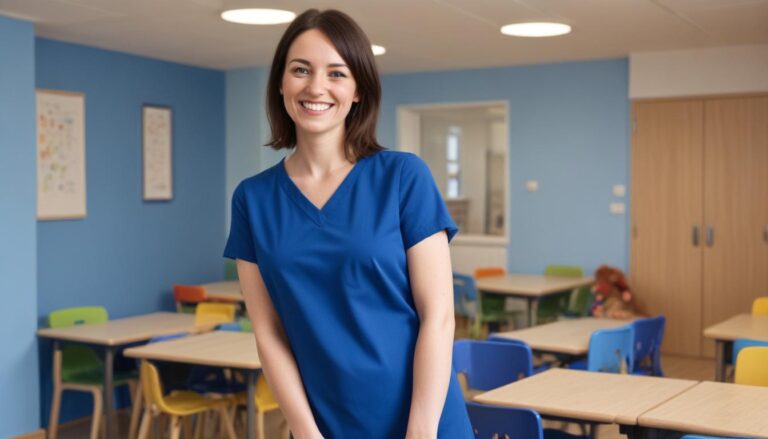This guide will help you answer 2.1. List the expected learning for the young child from technology toys or activities listed for each age range.
Technology plays an increasingly important role in children’s lives. When used thoughtfully, technology can offer a wealth of learning opportunities across different age ranges. Each stage of childhood development can benefit uniquely from technology toys and activities. In this guide, we will look at the expected learning outcomes for children of varying age groups as they engage with technology.
Infants (0-12 Months)
Infants are in a phase of rapid sensory and motor development. At this age, technology involvement is minimal but can provide foundational learning experiences through simple tech-enhanced toys.
Expected Learning Outcomes:
- Sensory Exploration: Toys with features such as soft glowing lights, gentle music, or varying textures stimulate an infant’s senses. These features encourage visual and auditory exploration, helping infants start to make connections between senses and responses.
- Basic Motor Skills: Early tech toys that involve pushing buttons or grabbing objects can support the development of gross and fine motor skills. As infants interact with these toys, they practice coordination and dexterity, which are essential skills as they grow.
- Cause and Effect Understanding: Interactive tech toys introduce the concept of cause and effect. For instance, when an infant presses a button and a sound or light appears, they begin to understand that their actions can produce specific outcomes. This simple concept is a building block for more complex cognitive processes later on.
Toddlers (1-3 Years)
Toddlers are curious explorers, eager to understand the world around them. Technology toys at this stage are more interactive and educational, aligning with their developmental needs.
Expected Learning Outcomes:
- Cognitive Development: Many tech toys for toddlers include educational games that introduce foundational concepts, such as numbers, shapes, and colours. These activities help reinforce cognitive development and early learning milestones.
- Hand-Eye Coordination: Touchscreen devices and other interactive toys improve hand-eye coordination. As toddlers navigate these devices, they practice precision and control, improving their ability to interact with their environment effectively.
- Problem Solving: Technology toys often incorporate simple puzzles or matching games that challenge toddlers to think critically. These activities encourage them to use reasoning skills to achieve objectives, fostering cognitive development.
Preschoolers (3-5 Years)
Preschoolers are at an age where social interaction, creativity, and foundational academic skills start to take centre stage. Technology toys that promote these areas are incredibly beneficial.
Expected Learning Outcomes:
- Early Literacy and Numeracy: Educational apps and games introduce preschoolers to early reading and maths skills. Through engaging activities, children can learn letters, phonics, counting, and basic arithmetic in a fun and interactive way.
- Creativity and Imagination: Digital drawing apps and creativity-focused platforms offer children a canvas to express themselves. Through virtual colouring books or creative games, children can explore their creativity and imagination without traditional limitations.
- Following Instructions: Many tech toys and games require children to follow verbal or visual instructions to advance in the game or complete activities. This helps develop listening skills, attention to detail, and the ability to follow multi-step instructions.
Early School Age (5-8 Years)
As children enter school, technology becomes a more integral part of their educational journey. The focus shifts towards integrating technology with formal learning and enhancing social skills.
Expected Learning Outcomes:
- Enhanced Literacy and Numeracy: Advanced educational software supports children in developing reading comprehension, writing, and more complex maths skills. Interactive and adaptive learning platforms can adjust to each child’s pace, providing personalised learning experiences.
- Logical Thinking: Coding toys and beginner programming activities introduce logical reasoning and problem-solving skills. These activities encourage children to think methodically and understand sequencing, laying the groundwork for future learning in STEM fields.
- Collaborative Play: Multiplayer games and shared digital experience platforms foster teamwork and communication. Children learn how to collaborate with peers, share responsibilities, and resolve conflicts, which are essential social skills.
Middle Childhood (8-12 Years)
During middle childhood, children’s cognitive, social, and academic abilities continue to grow. Technology can support these developments and prepare them for more complex tasks.
Expected Learning Outcomes:
- Critical Thinking and Problem Solving: Challenging puzzles, advanced games, or coding platforms encourage children to develop strategic thought processes. These activities require persistence and innovative problem-solving, nurturing their ability to tackle complex challenges.
- Digital Literacy: As children spend more time online, understanding internet safety and responsible use becomes important. Educational platforms can teach children about creating strong passwords, recognising safe websites, and managing their digital footprint.
- Project-Based Learning: Using technology for projects requires research, planning, and execution skills. Whether they are creating digital storytelling projects, presentations, or multimedia assignments, children enhance their organisational abilities and attention to detail.
Reflection and Balance
While technology offers excellent learning opportunities, it’s important to balance tech-based activities with traditional play, social interaction, and physical activities. Encouraging children to use technology responsibly and mindfully can help them gain the most from tech-based learning experiences, preparing them for future academic challenges and real-world skills.
Subscribe to Newsletter
Get the latest news and updates from Care Learning and be first to know about our free courses when they launch.




